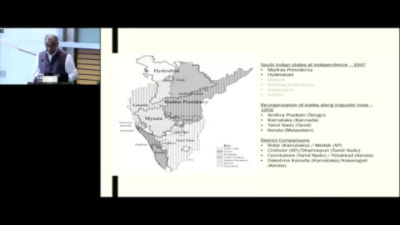Democratic institutions face a growing threat. Over the last two centuries, electoral democracy emerged as an effective means to solve collective action problems and hold governments accountable to citizens. However, a number of challenges¡ªfrom elite capture to corruption, clientelism, and even the increased availability of big data¡ªare putting this system to the test. At the same time, democracy is evolving to become more informal, local, and technology-driven, with civil society organizations playing a more important role. Opportunities for extra-electoral accountability are increasing, but so is polarization. The importance and legitimacy accorded to elections is consequently in decline.
Can anything be done to reverse this growing ¡°democracy fatigue¡±? In this talk, World Bank economist Vijayendra Rao will examine three approaches to reinvigorating democratic systems in developing countries:
- Direct Democracy: How effective are forms of direct democracy, where collective action is resolved not by counting votes but by consensus building? Rao will present results from analyses of large samples of transcripts of village meetings in rural India ¨C where such meetings are constitutionally sanctioned and fundamental to local government.
- Performance Incentives: How effective are salary-based performance incentives for elected representatives, as well as incentives that raise public budgets and provide non-monetary rewards for good performance?
- Democratizing Data: New methods can empower citizens to analyze and act on their own data. Rao will present tools for democratizing data that have been developed in the context of large World Bank projects in India and Indonesia.


